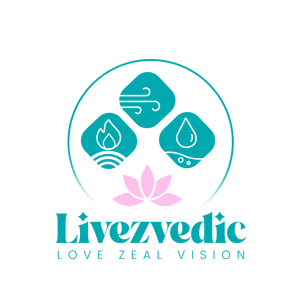The Gut-Brain Axis and Autism
Why Gut Therapy Should Be at the Core of Every Treatment Plan
2/14/20253 min read


When we think of Autism Spectrum Disorder (ASD), we often picture a child with challenges in communication, sensory processing, or social interaction. Most treatments understandably focus on the brain—behavioral therapies, occupational therapies, and sometimes psychiatric medication.
But what if we’re missing the root of the problem?
What if, as cutting-edge science and ancient medicine both suggest, the gut is not just influencing—but actively shaping—the child’s brain, behavior, and development?
In this article, we explore the deep science of the gut-brain axis, the role of gut dysbiosis in autism, and why early Ayurvedic gut therapy may be one of the most important tools we have for helping children on the spectrum live fuller, freer lives.
Understanding the Gut-Brain Axis: The Two-Way Highway of Health
The gut-brain axis is the constant communication network between the digestive system and the central nervous system. Through nerves (like the vagus nerve), hormones, and immune messengers, the gut sends vital information to the brain—and vice versa.
What’s fascinating is that the gut has its own nervous system—often called the "second brain"—which produces over 90% of the body’s serotonin (the “feel-good” hormone) and houses 70% of the immune system. The gut microbiome—trillions of bacteria that live in the digestive tract—play a key role in producing neurotransmitters, reducing inflammation, and even impacting emotional behavior.
When the gut is healthy, this communication is smooth, and the brain works better. But when the gut is imbalanced, the signals go haywire.
Gut Dysbiosis: What It Is and Why It Happens in ASD
Gut dysbiosis means there’s an imbalance in the bacteria inside the gut—too many harmful microbes and not enough beneficial ones. This can lead to:
Bloating, constipation, or diarrhea
Food sensitivities and poor absorption
Chronic inflammation in the gut and the brain
Emotional instability and behavioral issues
Weakened immunity
Research has shown that children with ASD often have significantly different gut microbiota compared to neurotypical children. But why?
Several reasons:
Cesarean births, lack of breastfeeding, and early antibiotic use can disrupt healthy gut flora in infancy
Highly processed foods, preservatives, and environmental toxins damage gut lining
Stress and sensory overload can also impair digestion and gut functioning
Pharmaceutical medications, often prescribed for symptoms, may worsen gut inflammation over time
The Gut-Brain Axis in Autism: What the Science Shows
Studies have repeatedly shown that gastrointestinal (GI) problems in autistic children are not just common—they are linked to the severity of autism symptoms. Many children with ASD experience:
Chronic constipation or diarrhea
Undigested food in stool
Leaky gut and inflammation
Increased irritability or aggression after eating certain foods
This isn't a coincidence. It's a clear reflection of the gut-brain connection.
When the gut is inflamed or toxic, it sends distressed signals to the brain. This can contribute to:
Heightened anxiety
Sensory issues
Poor sleep
Lack of focus and communication difficulties
Why Gut Therapy is the Cornerstone of Autism Treatment
This is why gut therapy is not optional—it is foundational.
You can’t build strong neurological development on a weak digestive system. Trying to improve speech, cognition, or behavior without healing the gut is like trying to plant seeds in dry, toxic soil.
Gut therapy offers:
Reduced inflammation in both gut and brain
Better nutrient absorption, essential for brain growth
Stabilized emotions and behavior
Improved sleep and immunity
Enhanced receptiveness to behavioral and educational therapies
Why Ayurveda Holds the Key: Early Gut-Focused Intervention
Ayurveda has understood the gut-brain link for over 5,000 years. In Ayurveda, “Agni” (digestive fire) is the source of health. When agni is weak, it leads to the build-up of ama (toxins), which obstruct the body and mind.
Ayurveda begins every treatment with gut healing—and for children with ASD, this can mean everything. Through gentle herbal remedies, detoxification, tailored diets, and nervous system-calming therapies, Ayurveda not only improves gut function but also supports neurodevelopment and emotional balance.
The earlier the intervention, the better. A young child’s brain is still forming, still plastic, still capable of incredible transformation—if we give it the support it needs.
Waiting too long to address gut issues can mean losing precious windows of brain development. This is why Ayurvedic intervention is not just helpful—it is urgently necessary during the early years of an autistic child’s life.
A Call to Parents, Caregivers, and Professionals
If you are a parent, a teacher, a therapist, or a medical professional working with autistic children—this is an urgent invitation.
Look at the science in the eye.
Listen to what both modern research and ancient wisdom are telling us.
The gut-brain axis is real. Gut dysfunction is not a side issue—it is central to the challenges autistic children face. And gut healing must be the starting point for any truly effective, holistic treatment.
Don’t wait. Don’t suppress. Don’t settle for surface-level solutions.
Every child deserves the best treatment possible.
It’s time to give them that.
